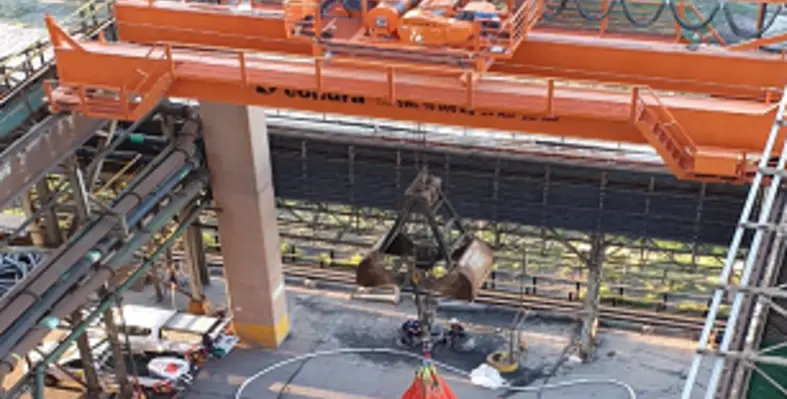Marc Kleiner, managing director of crane manufacturer Condra, said the growing awareness of the benefits of full crane automation is currently the most noticeable trend in Africa’s overhead crane industry
Kleiner, commenting on market characteristics emerging during the year just ended, explained there is a significant increase in the number of tender documents specifying provision for crane automation post-installation. Although Condra received no orders for fully automated cranes during 2022, the number of enquiries for such machines was up year-on-year.
“Repetitive crane operations such as those in refinery operations offer clear potential for increased productivity through automation,” said Kleiner. “South Africa has the technology and local manufacturing capability to deliver it, and now the market is becoming increasingly aware. I don’t think we will have to wait long before automation gains a foothold.”
Full automation implies zero involvement by machine operators. It is the ultimate step beyond an overhead crane in which the machine executes a limited number of pre-programmed, automated operations, but still needs an operator to control the crane during randomised, non-repetitive lifting functions (semi-automation). Condra has offered full automation across its product range since 2020.
“Vehicle manufacturers were first to use computers to monitor certain mechanical functions,” Kleiner surmised. “Crane manufacturers lagged this development, and it was a similar case with the control and smoothing out of lifting and lateral movement. It took time for crane manufacturers to introduce variable speed drives, whereas comparable control technologies had been present in motor vehicles for decades.
“This is not the case with automation, however. With automation, the crane companies are in the lead. The autonomous crane exists and is already performing useful work, whereas the autonomous motor car is still in the experimental phase.”
Kleiner noted that about one in five enquiries received by Condra now includes specified provision for future automation and provision of fitment and wiring points for the future attachment of cameras with cognitive movement control ability, the main requirements for automation.
Kleiner concluded, “Condra is in a good position going into 2023. We have a solid order book which includes contracts recently signed with steel companies and mines across Africa both above and below ground. Locally, our factories in Cape Town and Johannesburg are busy.
“The market is aware that Condra represents more than just crane manufacture and commissioning, offering design and engineering skills that dovetail with those of architects and structural engineers. We have considerable experience of working with these disciplines to deliver world-class, best possible lifting solutions within tight lead times. This is a strong foundation on which to build a successful 2023.”












